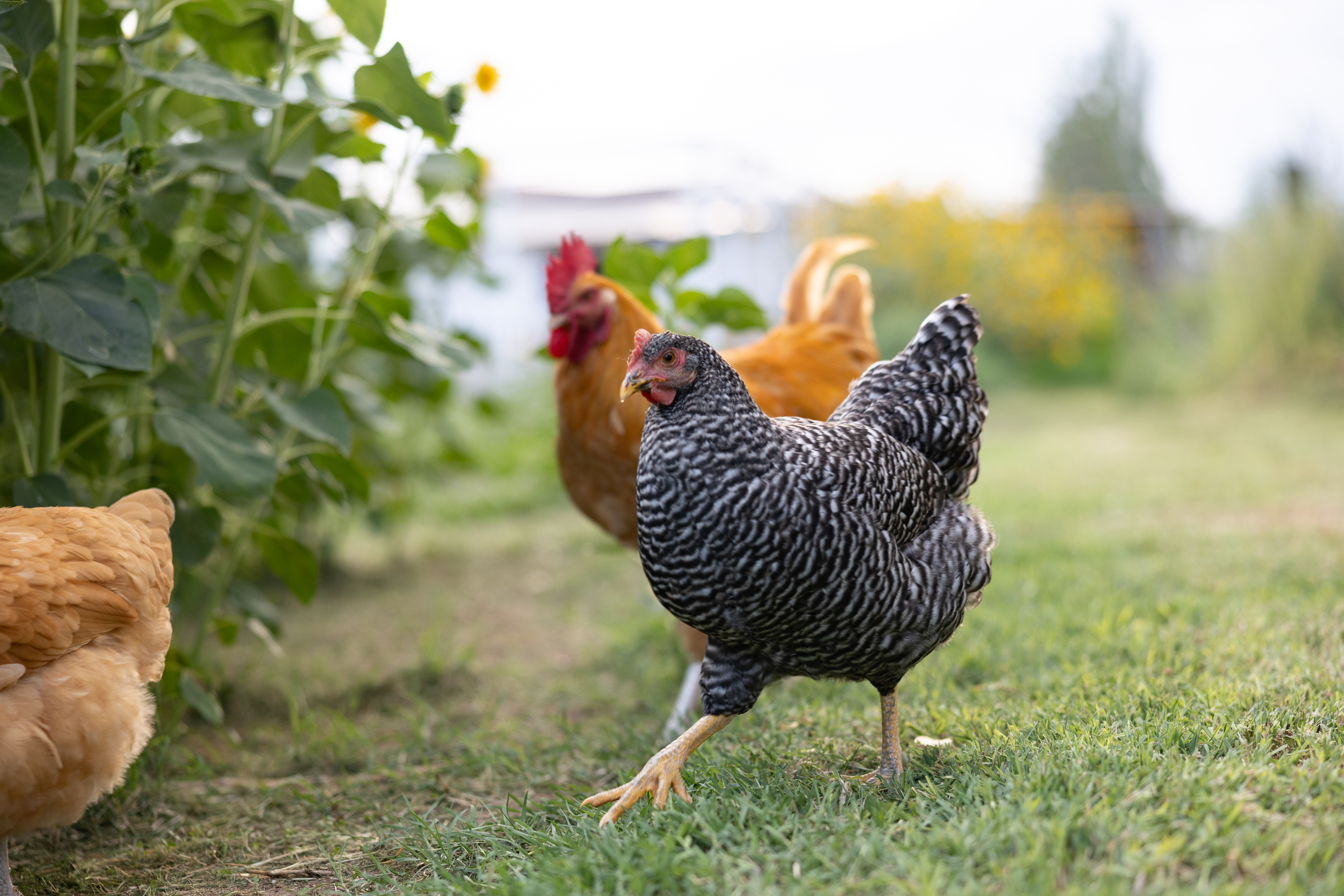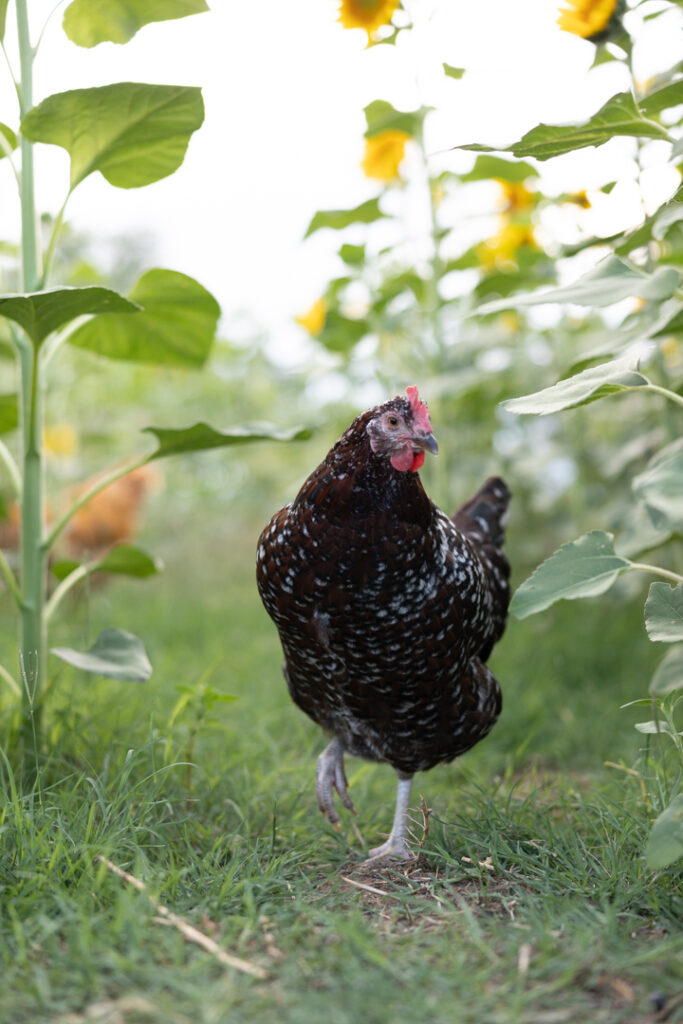Your First Backyard Flock: What You Need to Know Before Getting Chickens
Your First Backyard Flock: What You Need to Know Before Getting Chickens
Raising chickens in your backyard is a rewarding and fun experience, but it can feel a little overwhelming when you’re just starting out. Don’t worry—with some basic preparation, you’ll be on your way to fresh eggs and happy hens in no time. Here’s everything you need to know to get started with your first flock of chickens.


1. Check Local Regulations
Before you buy your first chicken, make sure it’s legal to keep them in your area. Many cities and neighborhoods have rules about:
- The number of chickens you can have.
- Whether roosters are allowed (most urban areas prohibit them).
- Coop placement and distance from property lines.
Check your city’s ordinances or consult your HOA, if applicable. Knowing the rules upfront will save you headaches down the road.
2. Decide on Flock Size
Chickens are social animals, so it’s best to start with at least 3-4 birds. This ensures they have companionship and keeps your flock balanced if one chicken gets sick or injured. For egg-laying purposes, 4-5 hens can provide enough eggs for a small family.
Keep in mind that the size of your coop and run will determine how many chickens you can comfortably keep. Aim for at least 4 square feet of coop space per chicken and 10 square feet of run space per chicken.
3. Choose the Right Breed
Not all chickens are created equal! Some breeds are better suited for beginners. Look for breeds that are hardy, friendly, and good egg layers, such as:
- Rhode Island Reds
- Buff Orpingtons
- Barred Rocks
Think about your goals: Do you want lots of eggs, chickens that are good with kids, or birds that can handle cold winters? Your answers will help you choose the right breeds.
4. Plan Your Coop and Run
Your chickens need a safe, clean place to live. Here’s what to consider:
- Coop Features: Include nesting boxes (1 per 3-4 chickens), roosting bars, and plenty of ventilation.
- Predator Protection: Use sturdy materials and hardware cloth to keep out raccoons, foxes, and hawks.
- Space Requirements: Overcrowding leads to stress and health problems. Make sure your coop and run are big enough for your flock (and you to be able to clean!)
You can build your own coop, buy a pre-made one, or repurpose materials like an old shed. Whatever you choose, ensure it’s easy to clean and provides adequate shelter.
5. Gather Supplies
To care for your flock, you’ll need a few essential supplies:
- Feed and Feeder: Starter feed for chicks or layer feed for adult hens.
- Waterer: Make sure it’s easy to clean and can’t be tipped over.
- Bedding: Pine shavings, straw, or sand for the coop floor and nesting boxes.
- Grit and Oyster Shell: Grit helps with digestion, and oyster shell provides calcium for strong eggshells.
- First Aid Kit: Include items like wound spray, electrolytes, and a pair of gloves.
Having these ready before your chickens arrive will make the transition smoother.
6. Understand the Time Commitment
Chickens are relatively low-maintenance, but they do require daily care:
- Morning: Let them out of the coop, check their food and water, and do a quick health check. We have an automatic chicken door and this has been a lifesaver.
- Evening: Collect eggs and close the coop door to keep them safe overnight.
- Weekly: Clean out the coop, refresh bedding, and inspect the flock for signs of illness.
If you plan to go on vacation, make sure you have a reliable friend or neighbor to care for them.
7. Prepare for the Unexpected
Chickens can be surprisingly hardy, but issues like predators, illness, and extreme weather can arise. Some common challenges include:
- Predators: Make sure your coop and run are secure.
- Health Issues: Learn to recognize signs of illness, like lethargy, loss of appetite, or changes in egg production.
- Extreme Weather: Provide shade and fresh water in the summer and insulation or extra bedding in the winter.
Educating yourself on these potential challenges will help you handle them with confidence.
8. Enjoy the Journey!
Raising chickens is a learning experience, and it’s okay to make mistakes. The more time you spend with your flock, the more you’ll understand their needs and personalities. Before you know it, you’ll be collecting fresh eggs and enjoying the company of your quirky, feathered friends.
Starting your first backyard flock is a fun and rewarding step toward greater self-sufficiency. With a little planning and preparation, you’ll set yourself up for success. What questions do you have about getting started? Share them in the comments below—I’d love to help!